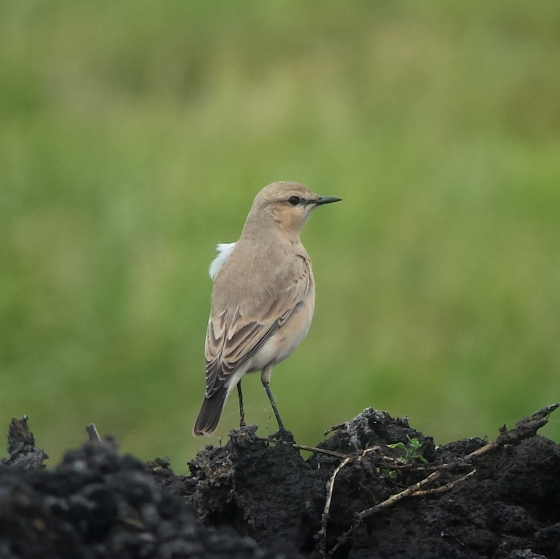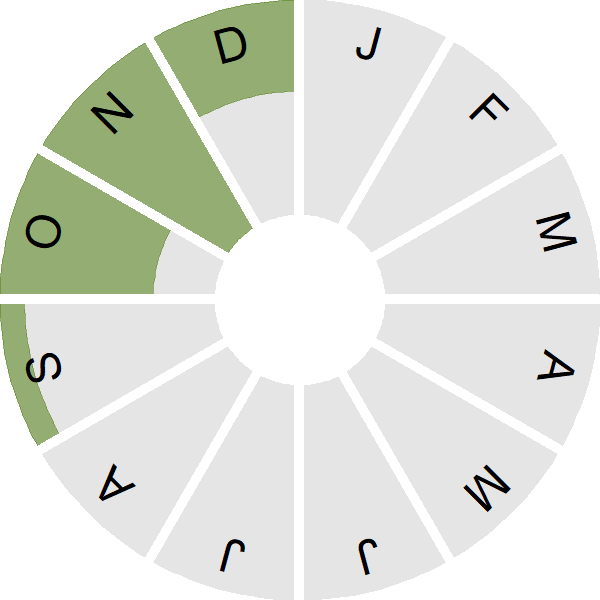Isabelline Wheatear

Introduction
Resembling a pale Wheatear, this is a very rare visitor for which most records come in late autumn.
Isabelline Wheatear breeds from eastern Greece and Turkey east to north-east China, and winters in the north and east of Africa, the Arabian Peninsula and east to Pakistan.

Key Stats
Status and Trends
Conservation Status
Population Size
Population Change
Population trends of this scarce species are not routinely monitored.
Distribution
This vagrant is too rarely reported to map distribution.
European Distribution Map
Distribution Change
This vagrant is too rarely reported to map distribution change.
Seasonality
Isabelline Wheatear is a rare vagrant and characteristically a late autumn bird, with most records in late October and November.
Weekly pattern of occurrence
The graph shows when the species is present in the UK, with taller bars indicating a higher likelihood of encountering the species in appropriate regions and habitats.

Movement
Britain & Ireland movement
Biology
Survival and Longevity
Survival is shown as the proportion of birds surviving from one year to the next and is derived from bird ringing data. It can also be used to estimate how long birds typically live.
Classification, names and codes
Classification and Codes
- Order: Passeriformes
- Family: Muscicapidae
- Scientific name: Oenanthe isabellina
- Authority: Temminck, 1829
- BTO 5-letter code: ISAWH
- Euring code number: 11440
Alternate species names
- Catalan: còlit pàl·lid
- Czech: belorit plavý
- Danish: Isabellastenpikker
- Dutch: Izabeltapuit
- Estonian: liiv-kivitäks
- Finnish: arotasku
- French: Traquet isabelle
- German: Isabellsteinschmätzer
- Hungarian: pusztai hantmadár
- Icelandic: Steppudepill
- Irish: Clochrán Gainimh
- Italian: Culbianco isabellino
- Latvian: dukaina cakstite
- Lithuanian: palšasis kultupys
- Norwegian: Isabellasteinskvett
- Polish: bialorzytka plowa
- Portuguese: chasco-isabel
- Slovak: skaliarik plavý
- Slovenian: bledi kupcar
- Spanish: Collalba isabel
- Swedish: isabellastenskvätta
- Welsh: Tinwen Felynllwyd

